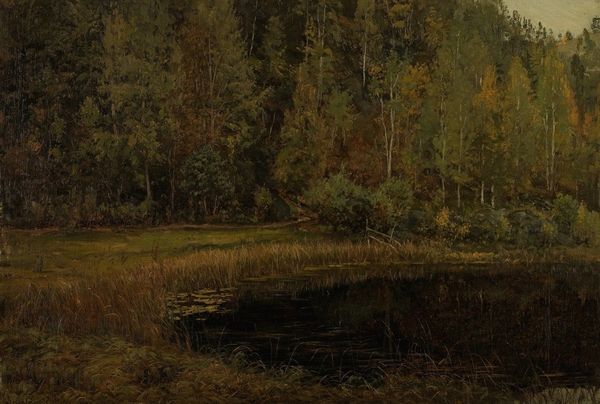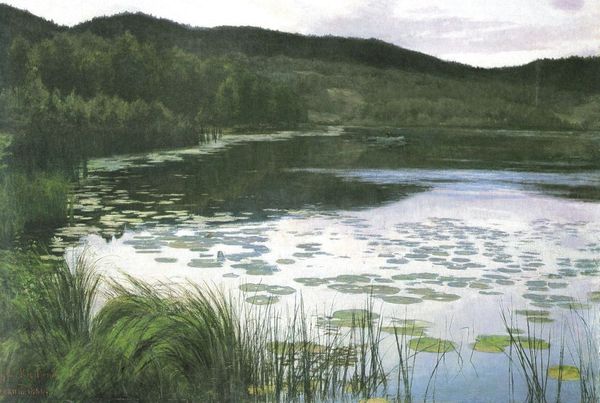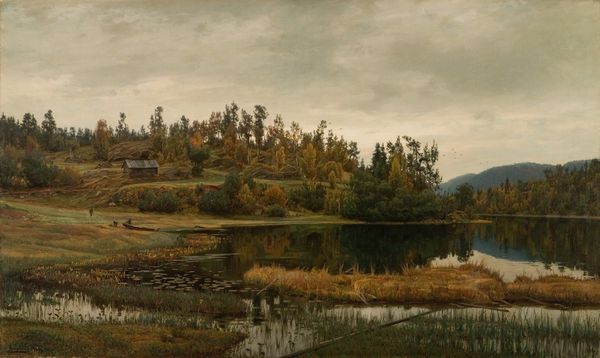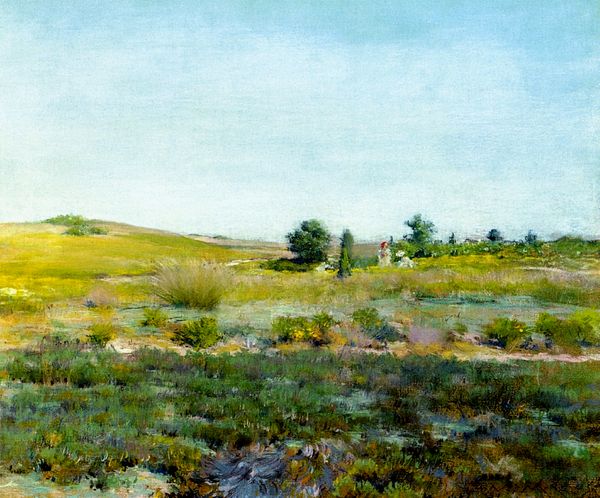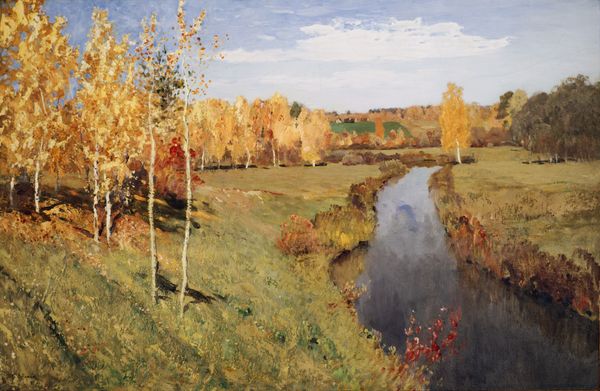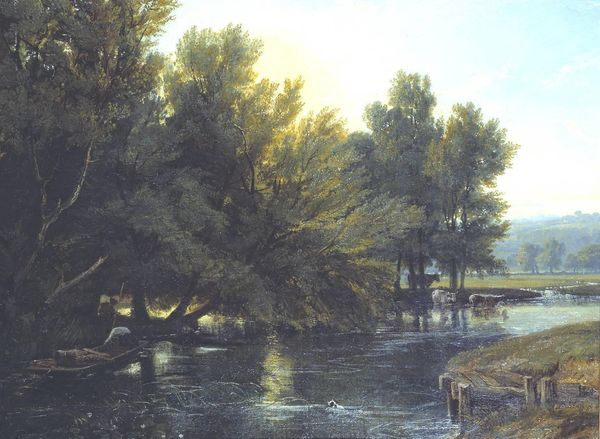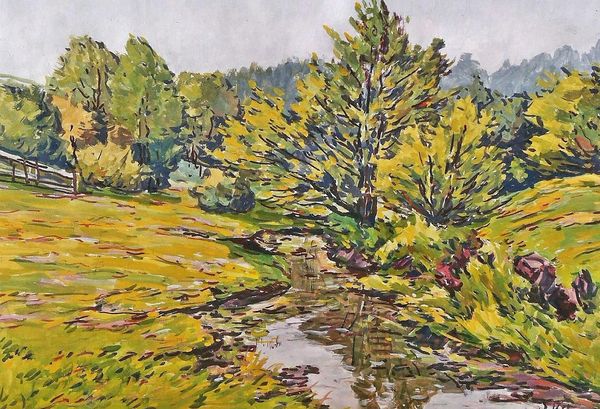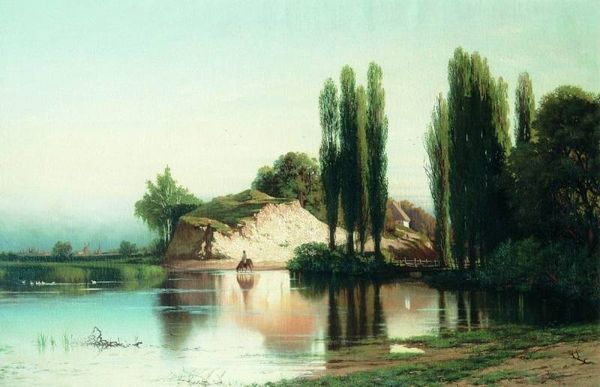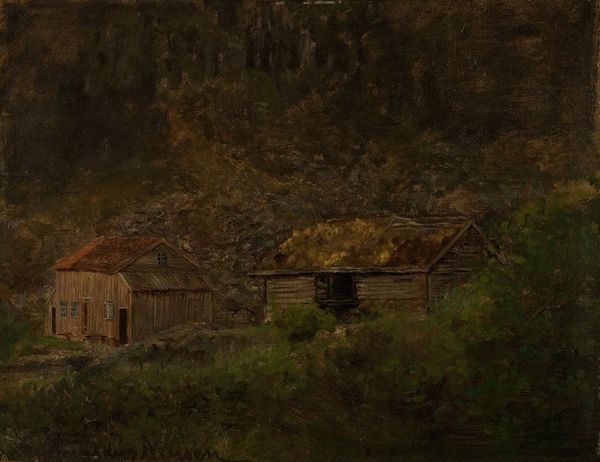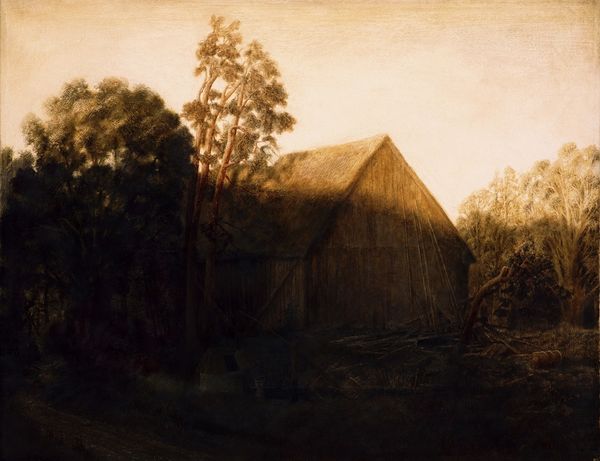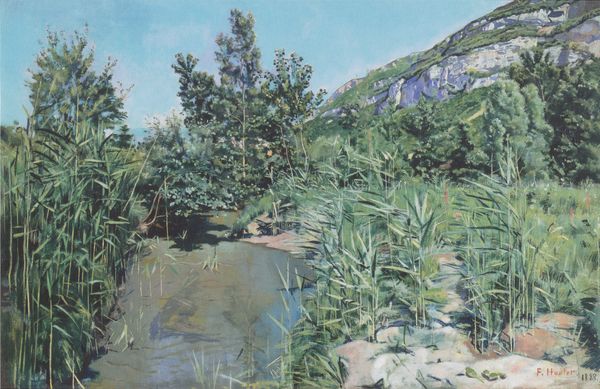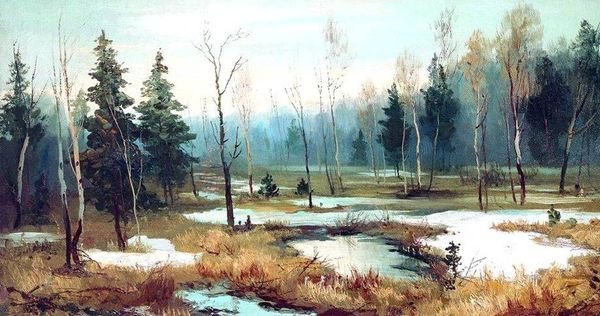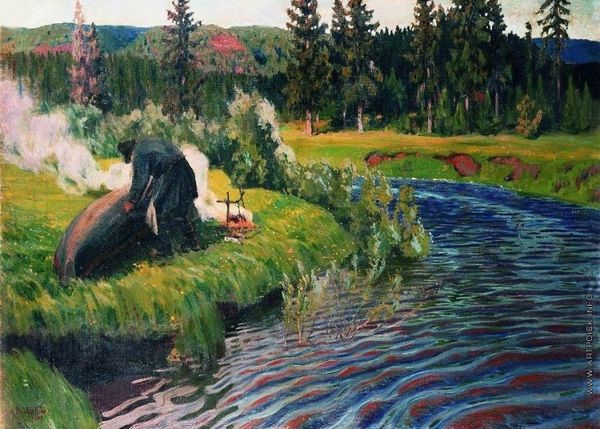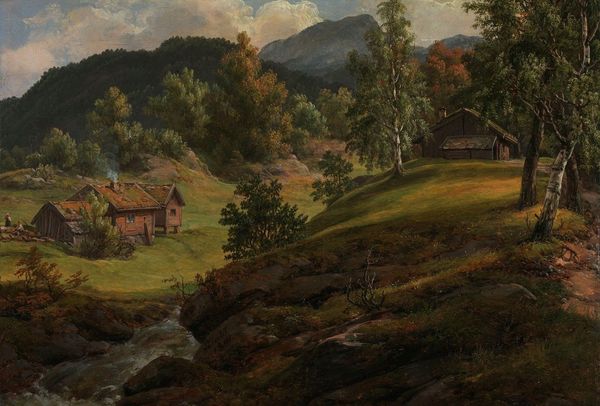
painting, oil-paint
#
painting
#
landscape
#
oil-paint
#
landscape
#
nature
#
post-impressionism
Dimensions: 41 x 65 cm
Copyright: Public domain
Curator: Looking at this, the dominant feeling is definitely a melancholy quietude, isn’t it? Almost feels like holding your breath. Editor: It's rather interesting, isn't it? What you are experiencing could very well stem from a convergence of symbols linked to a rich, and yet muted cultural history. You're seeing "Autumn. Mill. Plyos.," an oil painting from 1888 by Isaac Levitan, one of Russia's most celebrated landscape painters. Curator: Oh, Levitan! It's got that quintessential Russian soulfulness about it. It feels like a song, doesn't it? Sad but somehow... radiant. Editor: Yes, and Plyos, the small town where it was painted, was particularly inspirational to Levitan. Think about the mill, in particular. Historically, mills aren’t just structures. They're transformative spaces. They grind down, change something from one form to another; a motif for personal change and the inescapable passage of time? Curator: Absolutely. The architecture seems very somber. The light kind of bleeds out of the world in a way that invites your mind to wonder, not to admire. Editor: Note the use of color to intensify these symbolic resonances; the golds and ambers of autumn traditionally evoke a sense of nostalgia, completion, harvest. Curator: Those autumnal shades work like a muted symphony. But what do you read from this landscape and its muted colour palettes? Is Levitan trying to paint his feelings instead of an objective world? Editor: That's right! Landscape becomes a language for emotions, specifically connected to the Slavonic melancholy, which permeates their perception of nature and life itself, like a quiet river that slowly and perpetually winds into eternity. Curator: So, the painting is a way to feel the quiet ache of impermanence… Maybe to reconcile it as well. Editor: It speaks volumes about humanity's connection with the seasons and the enduring symbolic power found in ordinary images like rivers and water mills, resonating with something deep in our collective unconscious. A lament maybe? Or a resignation? Curator: Yeah. Either way, now, walking away, it does make one question: when has the wind whistled in my personal mill of transition? I imagine everyone sees something of their story told here. Editor: Exactly. And perhaps the invitation is to keep returning and reflecting on this visual poem and its potent symbolism.
Comments
No comments
Be the first to comment and join the conversation on the ultimate creative platform.
